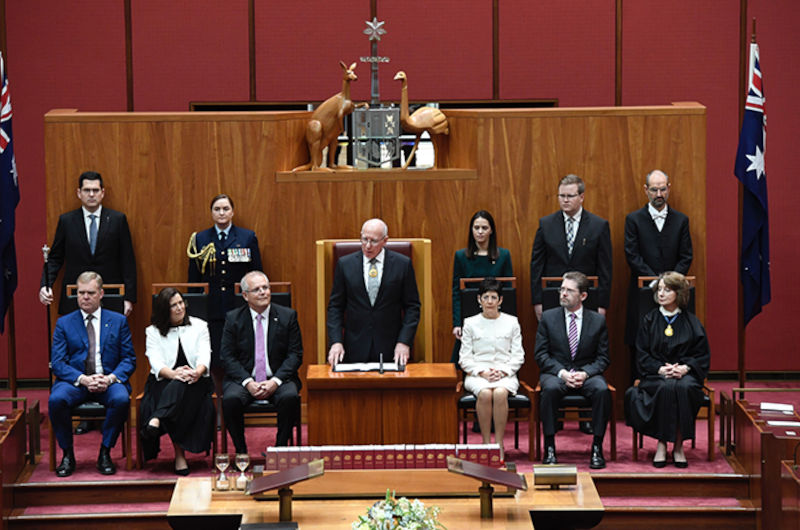Governor-General should have queried Morrison
August 17, 2022
Scott Morrisons enabling accomplice in his ministerial power grab, the Governor-General David Hurley, has some explaining to do if he is to resist suggestions that he should resign. Indeed, the political storm the ongoing revelations about Morrisons extraordinary actions may be so embarrassing for the Governor-General that his early departure from the role cannot be avoided.
The statement issued by the Governor-Generals office immediately after the revelation of Morrisons first two add-on ministerial posts was both inadequate and misleading. It said:
The Governor-General, following normal process and acting on the advice of the government of the day, appointed former prime minister Morrison to administer portfolios other than the Department of the Prime Minister and Cabinet.It is not uncommon for ministers to be appointed to administer departments other than their portfolio responsibility.
These appointments do not require a swearing-in ceremony - the Governor-General signs an administrative instrument on the advice of the prime minister. Questions around appointments of this nature are a matter for the government of the day and the Department of the Prime Minister and Cabinet. Similarly, the decision whether to publicise appointments to administer additional portfolios is a matter for the government of the day.
First, the Governor-General in appointing ministers does not act on the advice of the government of the day. This statement has misled some commentators into discussing the role of the Executive Council in such appointments. But ministerial appointments are the gift of the Prime Minister, only though the Prime Minister may be subject to party-political processes.
That is what happens immediately after an election, when the Governor-General calls on the leader of the successful party or coalition to be Prime Minister and then receives his or her advice as to who should be sworn in as ministers and in what positions. It is what happens during the course of a government, when there is a ministerial re-shuffle or new ministers need to be appointed. Similarly, the Prime Minister alone decides if a minister should be sacked by the Governor-General.
Second, while it is not uncommon for ministers to be appointed to administer departments other than their portfolio responsibility whenever they take leave, or go overseas, for example it is most unusual for the Prime Minister to appoint himself or herself to back-up an existing minister.
But it is completely unprecedented for the Prime Minister to be sworn in to a ministerial post concurrently with there being a minister exercising the relevant powers.
What Scott Morrison was doing was so unusual that the Governor-General should have asked him to put his advice (to swear himself in as Minister for Health, then Minister for Finance, etc.) in writing. If he did so, the Governor-General should publish that advice in precisely the same way that advice about calling an early election or a double-dissolution election is made public.
The Governor-General should also have concerned himself about whether he should obtain advice about the legality of what the Prime Minister wanted to do. That should have been sought not just from the Attorney-General (had the Prime Minister suggested that course) but from the apolitical Solicitor-General, with a view to making that advice public.
As well as publishing any advice given to him by the Prime Minister the Governor-General should also say whether he queried with the Prime Minister the decision to keep these appointments secret irrespective of whether it was for the government to publicise the appointments. And he should have required that response to be in writing.
It is true that the Governor-General had no discretion in making the appointments that the Prime Minister sought. There were no reserve powers at hand for him to refuse the Prime Minister. But even if the Covid scare was so overwhelming that he didnt think of questioning the first couple of appointments that the Prime Minister wanted, he should have queried the later appointments (when the panic had passed), and required an explanation in writing, if only to protect the office of Governor-General.
Unless he was concerned that by doing so his occupancy of that office might be at risk?
If he did ask questions, he should make the advice he received from the Prime Minister, or his department or the law officers, public now.
If there was anything in writing by the Prime Minister it would be interesting to see whether it was more coherent that the account Morrison, who until he was corrected by the Prime Ministers Department couldnt recall two of the later appointments, is providing now.

